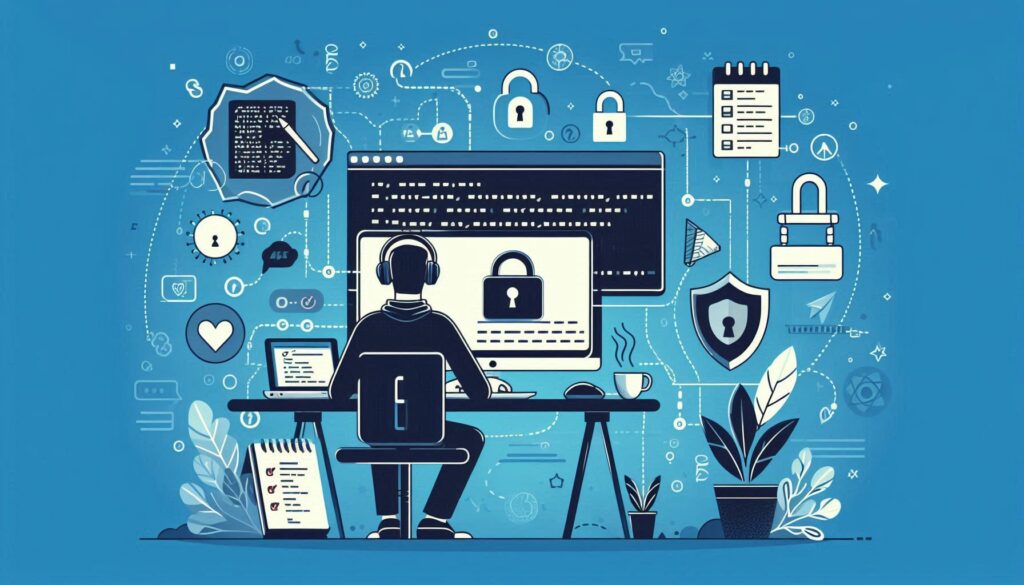Let’s be honest, most of us live our lives online. We shop, bank, chat, and work over the internet, right? It’s super convenient, but there’s a downside – cyber threats. The more we depend on tech, the more vulnerable we are to online attacks.
This is where ethical hackers come in. No, not the bad guys you see in movies! These hackers, also known as “white hat” hackers, actually help protect systems. Their job is to find security issues in companies’ systems before the real bad guys, the “black hat” hackers, can exploit them. Think of them as digital superheroes.
So, let’s talk about why ethical hacking is a big deal and how it’s helping protect us in the online world.
Cyber Threats Are Getting Worse
Here’s the scary truth: cyberattacks are happening more and more, and hackers are getting better at it. They’ve got tons of new tricks to steal data or cause chaos, which can end up costing companies a lot of money and damage their reputations.
Do you remember the WannaCry ransomware attack in 2017? It spread like wildfire across 150 countries, locking people out of their computers. Hackers found a hole in Microsoft Windows and used it to take over systems, demanding Bitcoin payments to give access back. It was a big mess, but it showed us why finding security flaws before hackers do is so important.
Plus, there’s something called Advanced Persistent Threats (APTs), which are super sneaky. These are long-term attacks where hackers steal info over time without getting noticed. With so many threats like this out there, ethical hackers are more important than ever.
What’s Ethical Hacking, Anyway?
Ethical hacking is exactly what it sounds like – hacking, but for a good cause. Ethical hackers do what bad hackers do, but with permission from companies. They poke around systems looking for weaknesses and report them, so they can be fixed before anything bad happens.
Here’s why ethical hacking matters:
1. Finding Problems Before Hackers Do
One of the biggest perks of ethical hacking is spotting vulnerabilities before cybercriminals can use them. Ethical hackers test all parts of a company’s system, from firewalls to software, to make sure there are no weak spots. And instead of using what they find for bad, they help companies fix the problem. For example, they might find a hole that could let someone steal data through an SQL injection. Ethical hackers make sure that hole gets patched up fast.
2. Strengthening Security
The main goal of ethical hacking is to help companies beef up their defenses. Regular testing keeps security up-to-date, so businesses can stay a step ahead of hackers. Simple fixes like strong passwords, secure firewalls, and timely software updates can go a long way in stopping attacks. The stronger the defenses, the safer everyone is.
3. Following the Rules
Most companies need to meet certain cybersecurity standards, especially if they handle sensitive data. Ethical hackers help make sure businesses comply with laws like the GDPR (General Data Protection Regulation) or PCI DSS (Payment Card Industry Data Security Standard). By testing systems, they help companies avoid fines and legal trouble by staying compliant with the rules.
4. Educating the Team
Ethical hackers do more than just find flaws in the system. They also train employees on how to stay safe online. Since many attacks happen because of simple mistakes, ethical hackers teach people to spot phishing emails, set strong passwords, and avoid sketchy links. They’re like coaches helping the team prevent security breaches.
How Ethical Hackers Do Their Job
Ethical hackers use the same tricks as bad hackers, but for a good reason. Here are some of the common methods they use:
- Penetration Testing: This is where they simulate a cyberattack on a system to see how far they can get. It helps show where the weak spots are.
- Social Engineering: This tests how vulnerable a company is to human errors, like phishing emails or being tricked into sharing sensitive info.
- Network Security Testing: Ethical hackers check for things like open ports or old software that might make a system easier to attack.
- Web Application Testing: They search for flaws in web apps that hackers could use to steal data or take over the system.
- Mobile App Testing: With more people using smartphones, ethical hackers also look for weaknesses in mobile apps that could be exploited.
What Happens If a Breach Occurs?
Even with top-notch defenses, hackers sometimes break through. When that happens, ethical hackers step in to help figure out what went wrong, stop the attack, and fix the issue. They also help companies close any security gaps to prevent future breaches.
Ethical Hacking vs. Bug Bounty Programs
You might’ve heard about bug bounty programs, where hackers are rewarded for finding security holes. These hackers usually work independently, while ethical hackers are hired by companies to do a more in-depth job. Both are important, but ethical hacking tends to be more thorough.
Ethical Hacking and Indian Cyber Laws
In India, ethical hacking is allowed, but there are rules to follow. The Information Technology Act of 2000 governs online activity here, and while ethical hacking is fine, hacking without permission is illegal. Always make sure you have authorization before you start testing anything.
Wrapping Things Up
Cyber threats aren’t going away anytime soon. In fact, they’re getting more sophisticated. That’s why ethical hackers are so crucial right now. They help companies find weak points, stay compliant with the law, and train employees to avoid making costly mistakes. They’re the good guys keeping the online world safe.
